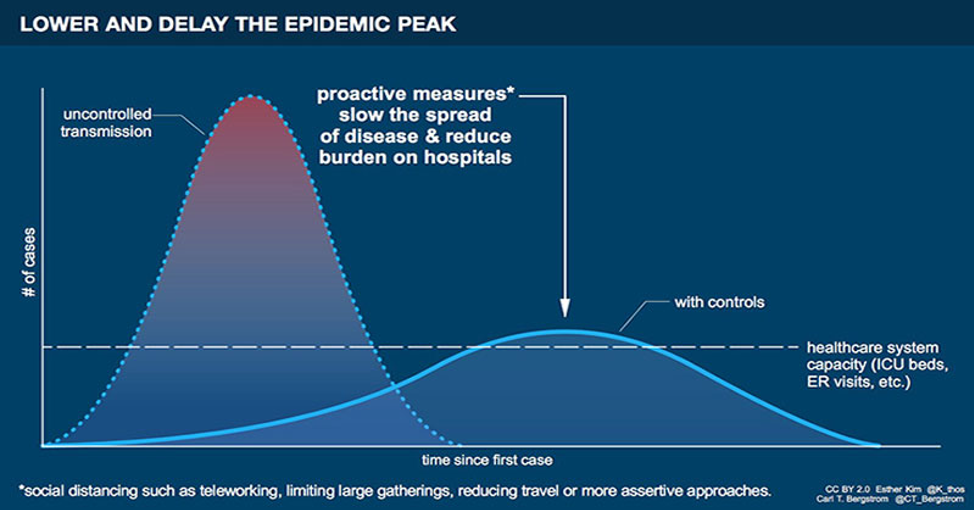by Kate Evans
The Centers For Disease Control (CDC) reported 3,487 confirmed and presumed cases of COVID-19 and 68 deaths in the United States as of Monday evening. Some 49 states, the District of Columbia, Puerto Rico, Guam and the U.S. Virgin Islands were reporting cases of the virus.
West Virginia was the only state that had no positive cases of the COVID-19 coronavirus as of Monday, according to the Department of Health and Human Resources COVID-19 coronavirus website. Some 80 people have been tested for the virus in West Virginia with four tests pending.
As of Monday evening March 16 there were 167,511 confirmed cases of the COVID-19 coronavirus globally with 6,606 deaths worldwide, according to the World Health Organization. (WHO) Some 81,077 of the confirmed cases and 3,218 deaths have been in China.
Outside of China the virus has spread to 151 countries, territories and areas with 86,434 confirmed cases and 3,388 deaths.
Case numbers change constantly. The John Hopkins’ Center for Systems Science and Engineering website lists 78,943 people as being recovered from the coronavirus worldwide.
Symptoms
COVID-19 symptoms include fever, cough and shortness of breath.
Health officials are advising calling your doctor first if you feel you have or may have COVID-19 symptoms so they can take precautions that others aren’t infected or exposed.
Emergency warning signs for COVID-19 include difficulty breathing or shortness of breath, persistent pain or pressure in the chest, new confusion or inability to arouse and bluish lips or face. If you develop any of these warning signs, get medical attention immediately. If there are other severe or worrying symptoms, contact your health provider.
Research indicates that older adults and people with serious chronic medical conditions such as heart disease, diabetes and lung disease are at high risk of getting very sick from the COVID-19 coronavirus. It’s important for these individuals to reduce their risk of getting sick.
CDC recommendations
The CDC advised at-risk individuals and others to stock up on supplies, stay away from crowds as much as possible, to keep their distance from people who are sick and to wash their hands often.
During a community outbreak, stay home as much as possible. Avoid cruise ships and all non-essential travel including plane travel.
Have enough groceries and household supplies on hand so you can remain at home for a period of time.
Wash your hands with soap and water for 20 seconds frequently. Avoid touching your eyes, nose and mouth with unwashed hands.
Ask your doctors about getting extended supplies of your medications in case of a community outbreak. Consider mail ordering your medications if that’s not possible.
Clean and disinfect things frequently that you use or touch often, such as doorknobs, light switches, phones, faucets, handles, toilets, sinks, keyboards, tablets and desks.
Avoid handshaking and avoid touching handrails, door handles and elevator buttons. Use a tissue or your sleeve to touch them.
Don’t share dishes, drinking glasses, eating utensils, towels or bedding with others in your household. Wash items after one use.
If sick with COVID-19
If you are sick, stay home and don’t go out except for medical care. Most will have mild illness with COVID-19 and can recover at home, said CDC officials. Keep in touch with your doctor. Call them if you’re feeling worse or if it’s an emergency.
Avoid ride-sharing, public transportation and public areas.
Wear a facemask if you’re sick.









